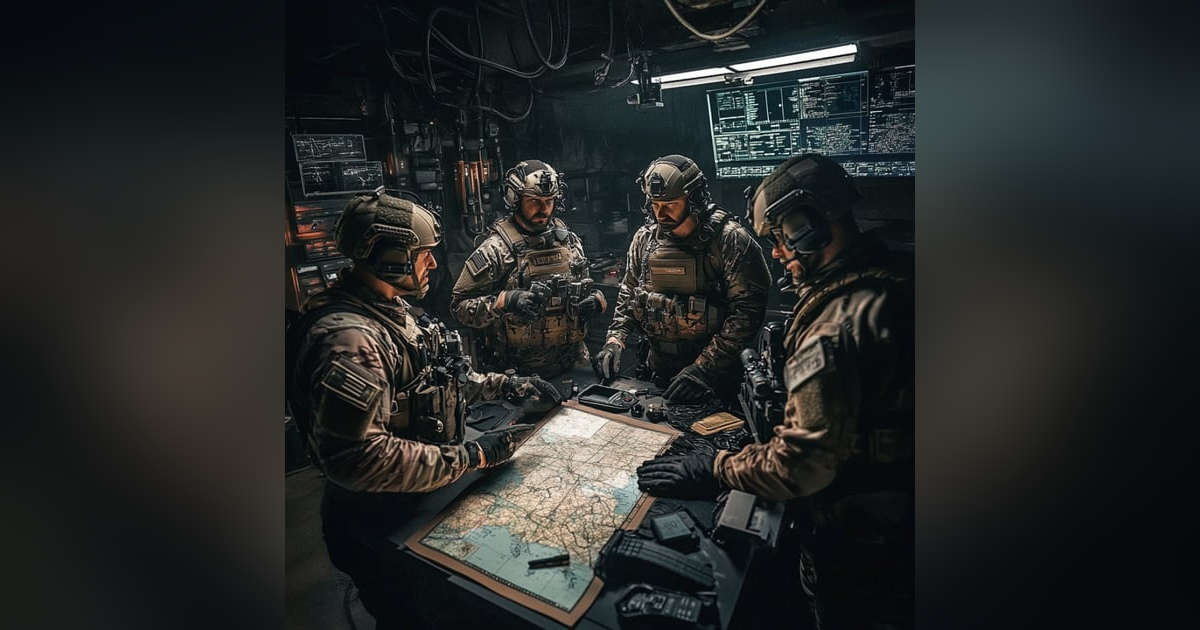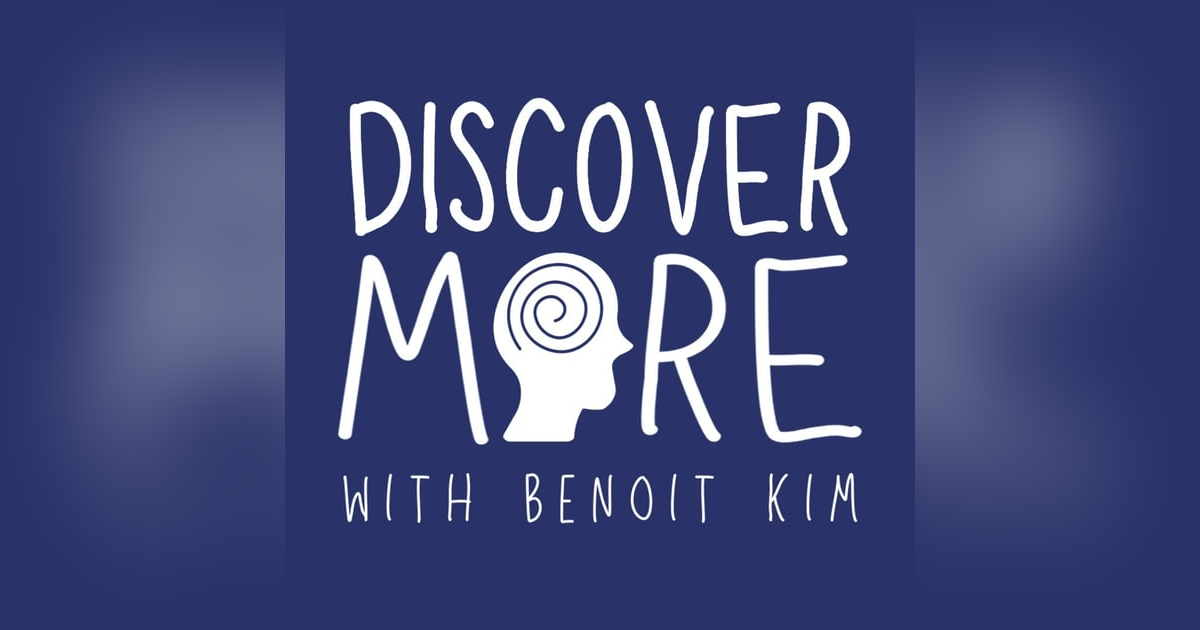#165. The Secret Reality of American Special Forces - Dr. Chris Frueh | Operator Syndrome


The American special forces have been the topic of countless movies due to their unbelievably cut-throat selection process, and the little-known reality of what they do and who they are.
What is the secret reality of special forces in the United States?
Dr. Chris Frueh is a clinical psychologist specializing in treating special forces, a professor of psychology, and a published author.
Chris’s unique ability to simplify complex medical issues allowed him to testify before the US Congress and serve as a paid contractor for the Department of Defense and the US State Department.
Get ready to peel back the curtain that only a select few had the opportunity to access due to the highly classified nature of the American special forces’s existence outside of limited Hollywood portrayal.
Welcome to Discover More. Let’s get this started!
Sponsor: Email for FREE 30-minute Mental Health Coaching
Rate The Podcast:
https://ratethispodcast.com/discovermore
Show Notes
Chris’s Website
Chris’s Instagram
Chris’s Book
*
Join Our Community
Discover More Website
Short-form Content
*
Discover More is a top ten social sciences podcast for independent thinkers who appreciate the importance of mental health, psychology, and social sciences. Looking for deep thinking?
*
Listen to all full-length episodes on audio:
Apple Podcasts: HERE
Spotify: HERE
*
Thank you for Discovering More with us!
One of the things that nobody wants to admit is there is a certain thrill in killing. I've had guys tell me there's both a missing of the thrill and a shame that it was a thrill. It's like a secret shame, shameful secret that they hold.
Dr. Chris Free is a clinical psychologist specializing in treating Special forces. You can schedule a free 30 minute consultation to start discovering more about your mental health journey. Get ready to peel back the curtain that only a select few had the opportunity to access.
Every branch of the U.S. military has some element of special operations. Operators are the tip of that spear. They go through a very profound, intense selection and training. Only about 8%, 5 to 8% are going to make it through.
Most of the referrals that I get are friends of friends, just word of mouth. One of the first hooks that I set for guys has always been sleep. Why must sleep be a non negotiable instead of an afterthought?
Sleep is so critical to our performance and our functioning. For special operations the much of the work is night work, especially on deployments. If you're giving short shrift to your recovery, you're sabotaging yourself.
The PTSD trap is when you try to convince the VA that you have PTSD and you get that disability and you pursue that disability, and then you don't get better. We have a concern that, that we've created a nation of psychiatric invalids in our veteran community.
The VA cannot show any evidence, administrative evidence of efficacy on their treatment programs. One of my great concerns as well is the over medication. $13 billion a year on mental health services alone. We have no evidence that it's helping veterans.
Chris: Why can't our diagnosis become our identity? This is not a veteran issue. We take these diagnoses and they become the center of our, of who we are. What I try to say to everybody is this is not your identity. We don't have to become our illnesses.
I'm very passionate about our trauma or diagnosis not being our identity. What makes humanity beautiful is we're larger than the sum of our parts. We have many roles and what I try to do is help guys and gals identify themselves based on who they want to be.
The framework that we're talking about is applicable not just to operators, it's applicable in different ways to other soldiers, to other combatants. All of our human physiological systems are connected to the others. We have to be paying attention to the effects of cumulative allostatic load over the course of years.
Chris: What are some of the common objections to developing a whole system approach since everything is interconnected to treating special forces and tier one operators. The worst end state that we see a lot of is suicides. Rather than having our current approach, we need to fragmented care.
The way the game is being played is not optimized for specialized populations. In 2020, our paper essentially went viral within the community of operators. What do you think is the ongoing barrier for the status quo to stop this or resist this from happening?
Chris: Why is your chapter on anger even more relevant today in 2024? We live in an angry world, don't we? Anger is an emotion that is comfortable for operators more so than other emotions. It causes so many problems with work and family, potentially for many.
Let's find a reasonable balance of, of that behavioral adaptation that kept you alive overseas. Here we don't really have IEDs, so when you're driving down the highway, if you see a McDonald's wrapper float. Trying to reduce the reflexive response on that at all times.
Our physiological state gives us some clue about how we're feeling. And then we put cognitive appraisal on top of that. With a brain injury, cognitive functioning is impaired. People who don't have emotions make very bad decisions.
I would love to talk about the thrill of killing and whether many of the special forces you've worked with either display sociopathic characteristics. This is something that we don't talk about in polite society. There's both a missing of the thrill and a shame that it was.
I think, I think the thrill becomes learned. Once you've had your first kill, your second kill, there comes a point where it becomes routine. And that actually gives them an, a huge edge in combat.
The thrill of killing is a fascinating topic, not just because we're in forensic world, but as you said, it's a highly taboo topic. No operator wants their family to have the images in their head of what they've seen and experienced. I find those issues very relevant to your demographic.
Overexposure, we become desensitized to the sadness and the tragedy of death. If death becomes mundane, how does one maintain empathy beyond that point? The real call to action is how can we maintain our empathy.
Many Vietnam War and older generation veterans often carry the burden of their stories alone, without sharing and in turn it actually creates ripple in their relationships. Why is it important for us to express these error cool secrets so we're not suffering by ourselves?
Don't get stymied by traditional mental health care. There are so many ways to approach and help each and every one of us with our psychological challenges. It's just the challenge is finding them and incorporating them into your lifestyle. Humans are amazing.
The medical paper itself is. You can find it on my website. It's a PDF. A lot of the foundations I work for have it posted. I have a website being re redesigned so it'll be even better in a few weeks. Book is available.
Chris: If we take away one thing from this book, learn to manage your anger and please get your sleep checked. As always I'll link all of Chris's information the show notes below. I want to encourage you to choose curiosity over fear. Share this episode with one friend.





